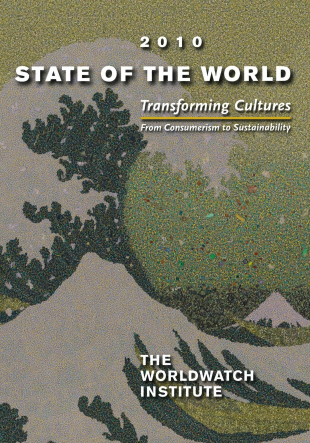"In contrast to their active involvement in environmental matters, the world's religious traditions seem to hold a paradoxical position on consumerism: while they are well equipped to address the issue, and their help is sorely needed, religious involvement in consumerism is largely limited to occasional statements from religious leaders.
<>"Religious warnings about excess and about excessive attachment to the material world are legion and date back millennia. Wealth and possessiveness — key features of a consumer society — have long been linked by religious traditions to greed, corruption, selfishness, and other character flaws. Moreover, faith groups have spiritual and moral tools that can address the spiritual roots of consumerism — including moral suasion, sacred writings, ritual, and liturgical practices — in addition to the environmental arguments used by secular groups. And local congregations, temples, parishes, and ashrams are often tight-knit communities that are potential models and support groups for members interested in changing their consumption patterns. . ."Despite the logic for engagement, religious intervention on this issue is sporadic and rhetorical rather than sustained and programmatic. It is difficult to find religious initiatives that promote simpler living or that help congregants challenge the consumerist orientation of most modern economies. . . .
"Advocating a mindful approach to consumption could well alienate some of the faithful in many traditions. But it would also address directly one of the greatest modern threats to religions and to spiritual health: the insidious message that the purpose of human life is to consume and that consumption is the path to happiness. Tackling these heresies could nudge many faiths back to their spiritual and scriptural roots — their true source of power and legitimacy — and arguably could attract more followers over the long run."
